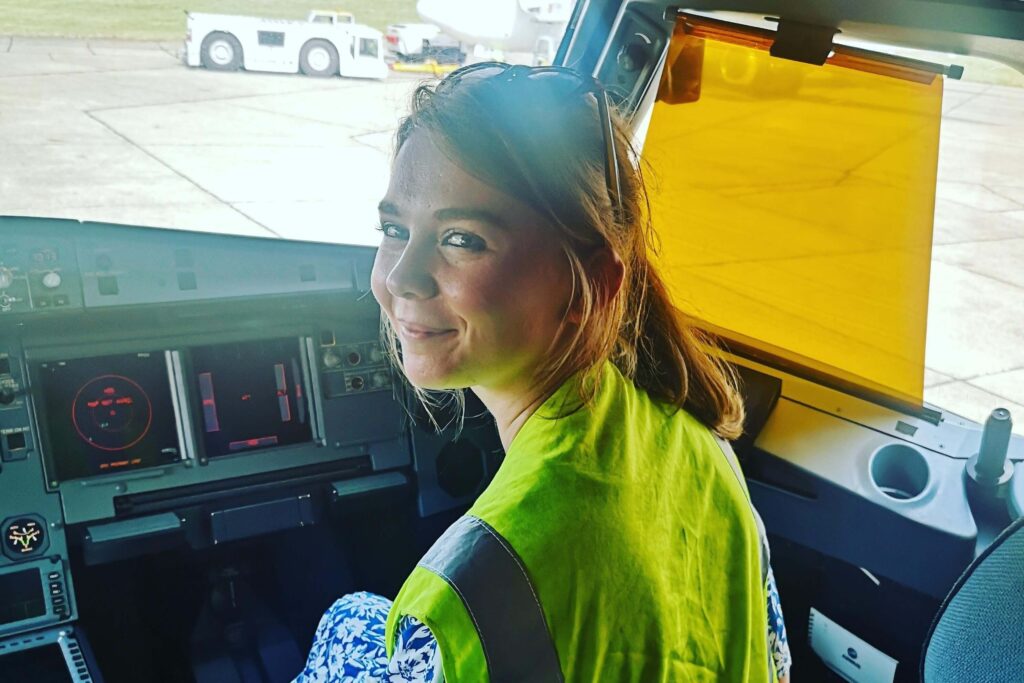If you mention in passing to a friend that you work in aviation, a lot of images naturally come to mind – perhaps that of a pilot, a cabin crew member or maybe even a check-in assistant. This is of course only natural, as the more visible parts of the industry to anyone passing through an airport, or travelling abroad to visit friends and family.
No doubt this would have been the very first image in my mind of the industry at the age of 19, boarding a plane for the first time on the eve of moving abroad for university (I’m embarrassed to remember at the time that no sooner had I left family and headed for departures, I had no idea of the process – does someone tell you which gate to go to or when your plane is arriving?!) It wasn’t until later in my own career that I would learn how the reality is much more expansive, with the different roles required to keep this incredible industry running.
Working in communications and public affairs – including for UK airlines, a major London airport and in advisory capacity – I am fortunate to have been exposed to the myriad of different roles required to not only keep day to day operations going, but also maintain the UK’s envied status as the 3rd largest aviation market globally. Whether that’s the air traffic controllers who carefully direct aircraft with exact efficiency, the press officers who keep a cool head through a crisis or the accessibility officers, working to ensure the airport journey supports all levels of mobility. Indeed, this diversity was no more present in my own role where day to day issues could reach from such heights of diversity as allergies to airport expansion.
Perhaps the greatest experience of getting to know the sector more fully though was an invitation I received to work with a group representing women in aviation, and in particular, ambitions to see greater gender parity in roles at senior levels. The Women in Aviation & Aerospace Charter represented a commitment from industry to topple headline statistics that suggested less than 5% of pilots in the UK were women and identify the best route to bringing more diverse talent to the sector. Working with this incredible body of people, I was exposed to not only the incredible on-the ground schemes that industry were engaged in – whether that was the “FlyShe” campaign to get more educational materials in schools or EasyJet’s Amy Johnson initiative to recruit more female pilots – but also the passion of the people working in the sector. This was not just limited to female colleagues – men across the industry were jointly spearheading these programmes, equally passionate about the campaign’s objectives. Indeed, the recent report published by the Charter revealed this importance of inclusive ambition as a catalyst for businesses looking to achieve change. I recommend anyone interested in learning more to read the Charter’s latest report.
This passion extended to other core objectives and it was also my privilege to see industry make a pledge last year to net zero emissions by 2050 – making UK aviation the first country globally to do so. I have no doubt the UK will continue to lead on this ambition to an international audience later in the year, at Glasgow’s hosting of COP26.
To look to the present, the pandemic has no doubt brought incredible challenges to a brilliant industry – but these core ambitions that existed before the crisis – an inclusive workforce and a sustainable future – remain stronger than ever. So, to anyone starting to think about their future career path, whether that’s an engineering apprenticeship, a communications specialism or a passion for customer facing roles – I can with confidence give you my full encouragement to check in.
Francesca is a senior consultant at Lexington Communications in London, advising a range of infrastructure clients.


